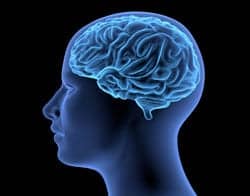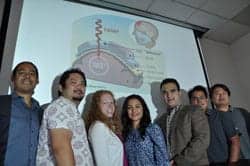
The release states that Einstein scientists are using MRI technology and psychological tests to investigate the structural and biological impact of repeated head injury on the brain, and pinpoint how these injuries also affect cognitive function.
“We hope that our research will lead to a more scientifically valid diagnostic technique—one that uses imaging to not only detect the underlying brain injury but reveal its severity. Such a technique could also objectively evaluate therapies aimed at healing the brain injuries responsible for concussions,” says Michael Lipton, MD, PhD, associate director of Einstein’s Gruss Magnetic Resonance Research Center.
According to the release, Einstein researchers are studying 20 veterans from Ohio and Michigan who were deployed in Iraq and Afghanistan and have exhibited symptoms of repeated concussion. The researchers add that 20 of the veterans’ siblings or cousins without concussion are acting as controls.
Diffusion tensor imaging (DTI) is currently being used to identify injured brain areas, the release notes. The imaging technique is engineered to allow researchers to measure the uniformity of water movement (fractional anisotropy [FA]) throughout the brain. Abnormally low FA within white matter suggests axon damage and has been previously linked to cognitive impairment in patients with traumatic brain injury (TBI), researchers explain.
The university notes that the final group of veterans is slated to visit Einstein for testing in February 2014, with preliminary results becoming available this year.
Source: Albert Einstein College of Medicine of Yeshiva University





